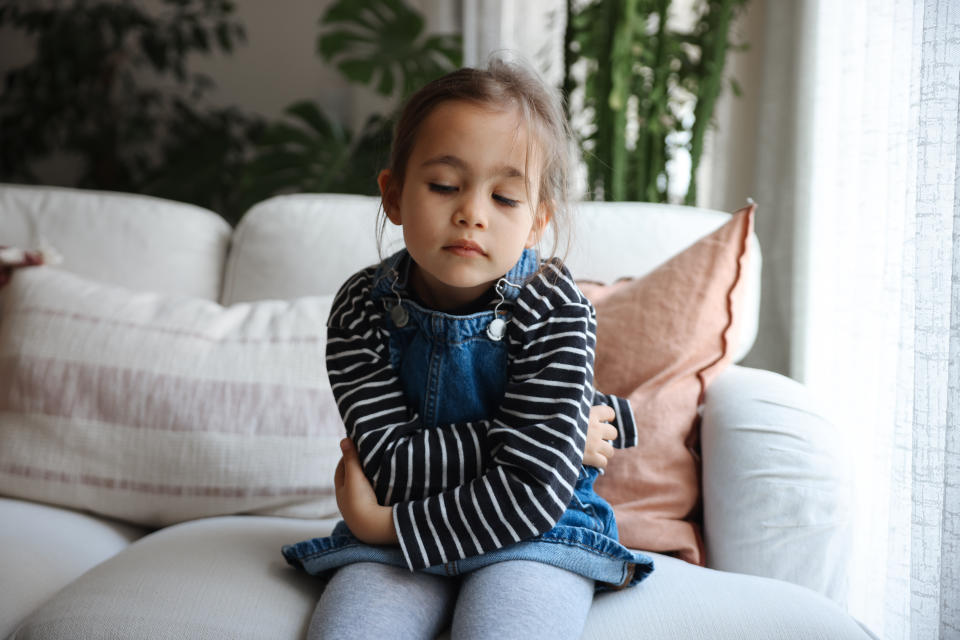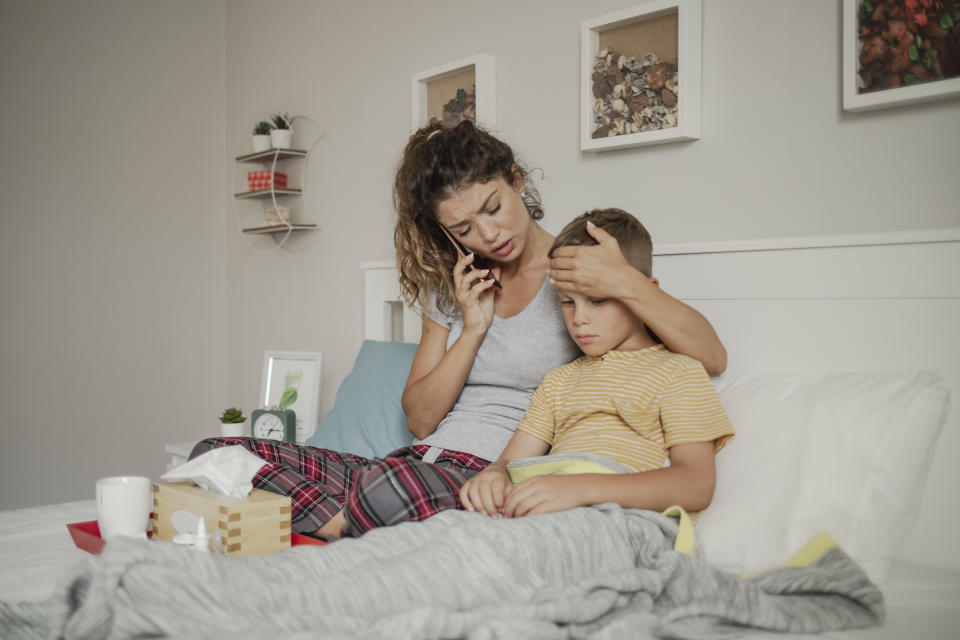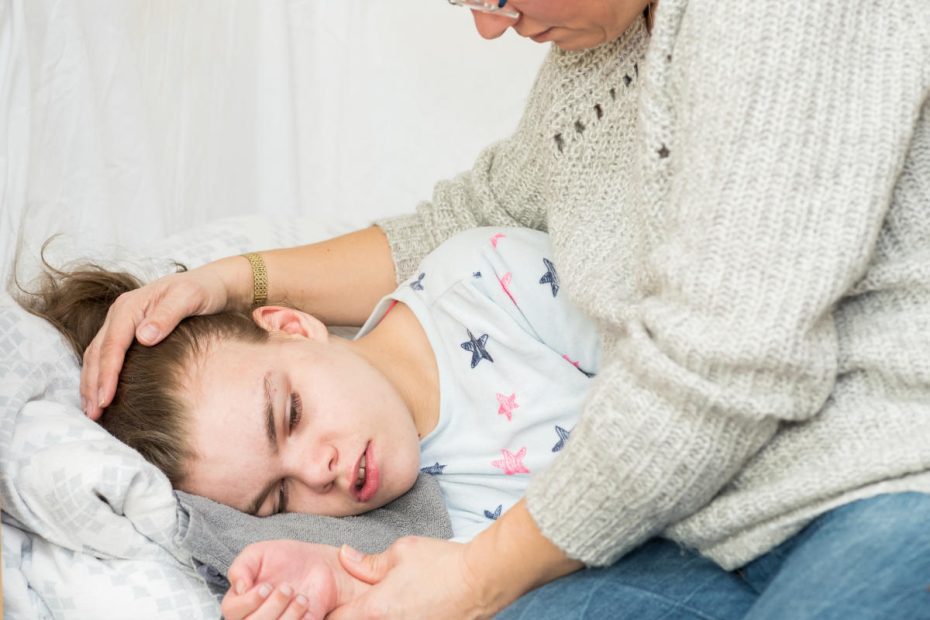Children in England who live with a rare and serious form of epilepsy can soon benefit from a new medicine that is being rolled out on the NHS.
Fenfluramine is recommended by the National Institute for Health and Care Excellence (Nice) for patients two years and older with the Lennox -Gastaut syndrome (LGS).
LGS is a rare and serious form of epilepsy that starts in early childhood and is resistant to many treatments. It is thought that about 1-2% of the 60,000 children in England with Epilepsy have LGS.
Familiar news and daily pleasure, exactly in your inbox
Watch yourself-the Yodel is the source for daily news, entertainment and feel-good stories.
The drug, the first non-Cannabis-based treatment that has been approved for this form of epilepsy, is taken daily as an oral liquid medicine and works by increasing the levels of serotonin in the brain to reduce attacks.
Lisa Suchet, whose 10-year-old son LGS has, says that the medicine offers her son hope for “attack freedom”.
“My son suffered from epileptic seizures since he was five weeks old, including Drop attacks, which are most devastating,” she said. “They occur without warning, cause immediate collapse and the risk of head injury is high because of the sudden fall.”
Suchet says that so far there have been so few effective drugs for attack control. “Many do not work for all patients, many have debilitating side effects or interactions with other medicines that a patient might have to take,” she explains.
“That there is now another option available, which has shown effective results and minimal side effects is a huge comfort. It essentially offers a chance of attack freedom, which is essentially a different chance of life; for the patient and the family Or caregivers who are considerably influenced by this terrible disease. “

There are 60,000 children in the UK who live with epilepsy. (Getty Images)
What is epilepsy?
Epilepsy is a neurological disorder (which influences the brain and nervous system) where a person tends to have attacks that start as a disturbance of signals in the brain.
Some children stop epileptic seizures after a period of treatment, but others need long -term treatment.
The condition is more common than many people realize, with about one child living in every 200 with epilepsy.
What causes epilepsy in children and is it hereditary?
The NHS says that although there is sometimes a clear reason to develop epilepsy, for example a serious blow to the head, an infection of the brain such as meningitis, or brain damage due to lack of oxygen during a difficult birth, in other cases it is not clear.
It is possible that the epilepsy of a child can be partially caused by their genes who influence how their brains work, such as the NHS estimates that about one in three people with epilepsy has a family member.

Children can experience different symptoms during an epileptic attack. (Getty Images)
What happens during an attack?
There are attacks caused by a sudden eruption of electrical activity in the brain, which temporarily disrupts the way in which messages are passed on.
There are a number of different types of epileptic attack, but the type A type depends on which part of their brains is influenced by the condition.
The Epilepsy Society says that there are two main types of attacks: focal attacks and generalized attacks.
“Focal attacks start only one side of the brain and generalized attacks influence both sides of the brain,” explains the charity. “In general, adults and children have the same types of attacks. However, some can occur more often in childhood (for example, absence attacks that can be very short and are often mistaken for 'daydreaming' or not paying attention).”
The kind of symptoms that a child experiences during an attack can be:
-
Unusual sensations such as a strange taste in the mouth or a strange scent, or an increasing feeling in the stomach.
In some types of attacks, a child can be aware of what is happening. In other types, a child will be unconscious and have no memory of what happened next.
Some children can have epileptic seizures when they sleep (sometimes “asleep” or called 'nocturnal' attacks).
What causes an attack?
The Epilepsy Society says that some children's attacks can occur in response to triggers such as stress, excitement, boredom, missed medication or lack of sleep.
The charity recommends keeping a diary of your child's attacks, who can help to see if there are patterns when they happen and what can have activated them.
What to do if your child has an attack?
If a child experiences a tonic-clonic attack (when his body becomes stiff and the type of attacks most people associate with epilepsy), the Great Ormond Street Hospital recommends not to stop.
“Instead, remove furniture from the road, try every tight clothing to loosen the neck and stay with the child until the attack ends,” the site explains. “As soon as uncontrolled movements end, you put the child on their side in the recovery position.”
If a child has a different kind of attack, it is recommended to sit and stay with them until they are fully recovered and alert. Rest the child calmly resting.
The NHS recommends calling 999 for an ambulance if your child:
-
is an attack for the first time
-
has an attack that takes more than 5 minutes
-
has many attacks in a row
-
has breathing problems or has seriously injured itself

If it is your child's first attack, experts recommend calling 999. (Getty Images)
Are children from epilepsy grow?
The number and type of attacks that your child has can change over time. But some children outgrow their epilepsy in their midst until late teenage years. According to the Epilepsy Society, this is called “spontaneous remission”.
Can epilepsy be cured in childhood?
There is currently no remedy for epilepsy, but the treatment can help most children with epilepsy to have fewer attacks or not to stop epileptic seizures.
-
Medicines called anti-epileptic drug-this are the most important treatment
-
Surgery to remove a small part of the brain causes the attacks
-
A procedure to place a small electrical device in the body that can help arrange attacks
-
A special diet (ketogenic diet) that can help control attacks
In very rare cases where medication does not help, and scans indicate that a structural brain disorder is the cause, surgery can be suggested.
Read more about Epilepsy:

